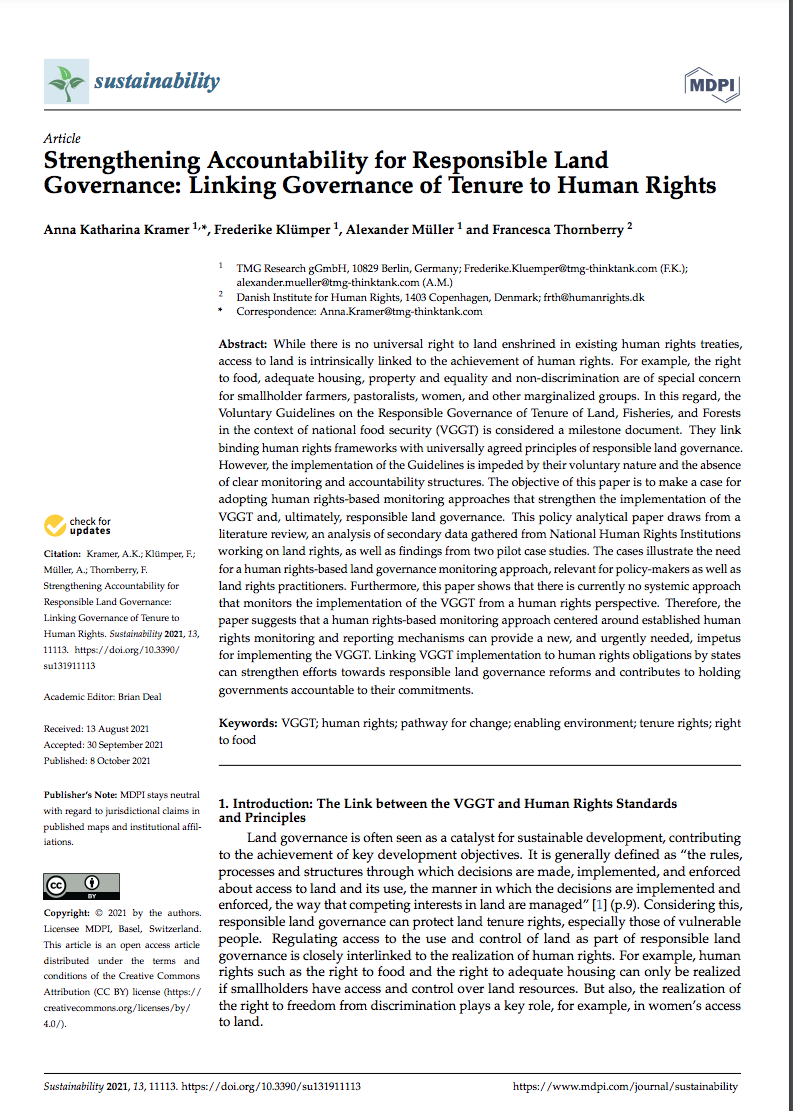Location
MDPI AG, a publisher of open-access scientific journals, was spun off from the Molecular Diversity Preservation International organization. It was formally registered by Shu-Kun Lin and Dietrich Rordorf in May 2010 in Basel, Switzerland, and maintains editorial offices in China, Spain and Serbia. MDPI relies primarily on article processing charges to cover the costs of editorial quality control and production of articles. Over 280 universities and institutes have joined the MDPI Institutional Open Access Program; authors from these organizations pay reduced article processing charges. MDPI is a member of the Committee on Publication Ethics, the International Association of Scientific, Technical, and Medical Publishers, and the Open Access Scholarly Publishers Association (OASPA).
Members:
Resources
Displaying 656 - 660 of 1524Spatial-Temporal Pattern and Influencing Factors of Land Ecological Carrying Capacity in The National Pilot Zones for Ecological Conservation in China
Improving land ecological carrying capacity (LECC) is important in accelerating the realization of national ecological civilization construction goals. Based on the panel data of the first batch of prefecture-level cities in the National Pilot Zones for Ecological Conservation initiative from 2005 to 2019, this study analyzes the spatial–temporal pattern of LECC using the improved ecological footprint model, Theil–Sen’s slope estimator and Mann–Kendall test, and investigates the influencing factors of LECC using the geodetector.
Catchment-Scale Participatory Mapping Identifies Stakeholder Perceptions of Land and Water Management Conflicts
Competing socioecological demands and pressures on land and water resources have the potential to increase land use conflict. Understanding ecosystem service provisioning and trade-offs, competing land uses, and conflict between stakeholder groups in catchments is therefore critical to inform catchment management and the sustainable use of natural resources.
Modeling Cultural Keystone Species for the Conservation of Biocultural Diversity in the Afroalpine
Climate warming threatens the future sustainability of mountains, and tropical mountains are particularly threatened with loss of biodiversity and associated ecosystem services. Conservation biologists increasingly turn to habitat suitability models to guide the establishment and assessment of protected area networks to protect the highest number of species, yet this focus often neglects the values, attitudes, and beliefs of the people living around protected areas.
Strengthening Accountability for Responsible Land Governance: Linking Governance of Tenure to Human Rights
In a new paper, written with a colleague from the Danish Institute for Human Rights, TMG researchers Anna Kramer and Frederike Klümper, and TMG Managing Director Alexander Müller, make a case for adopting human rights-based monitoring approaches that strengthen the implementation of the Voluntary Guidelines on the Responsible Governance of Tenure of Land, Fisheries, and Forests (VGGT), and ultimately support responsible land governance.
Fit-for-Purpose Land Administration—Providing Secure Land Rights at Scale
This Special Issue provides an insight, collated from 26 articles, focusing on various aspects of the Fit-for-Purpose Land Administration (FFPLA) concept and its application. It presents some influential and innovative trends and recommendations for designing, implementing, maintaining and further developing FFP solutions for providing secure land rights at scale. The first group of 14 articles is published in Volume One and discusses various conceptual innovations related to spatial, legal and institutional aspects of FFPLA and its wider applications within land use management.





